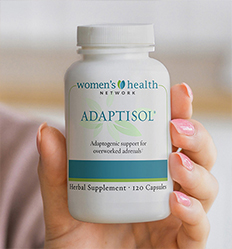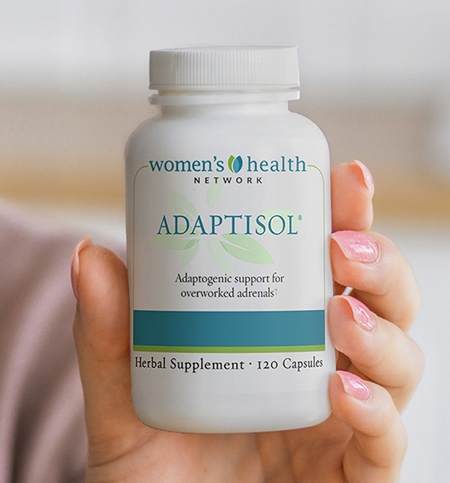Most conventional doctors are trained to spot diseases of the adrenal glands, but not necessarily the steps that lead up to them. This is why adrenal fatigue is often missed or written off as being “all in your head.”

Are you suffering from unexplained symptoms such as extreme tiredness, weight gain around the midsection (aka belly fat), brain fog, depression, insomnia and cravings for salty foods?
As Dr. Sharon Stills explains, these symptoms are real. So is the adrenal fatigue at the root of what’s driving them.
Watch her video, “Is Adrenal Fatigue Real?” or read the excerpt transcript below. You’ll learn why conventional doctors have such a hard time acknowledging adrenal fatigue. And what you can do to finally get the help you need.
[The following transcript excerpt has been edited for clarity and length.]
Is adrenal fatigue all in your head? Absolutely not!
When I talk to new patients and I suspect they have some kind of adrenal imbalance, often they don’t really know much about their adrenal glands. In the conventional medical care they’ve received up to that point, their adrenal glands were pretty much ignored.
So, let me just give you some quick basics about the adrenal glands. The adrenals are these two glands that sit on top of your kidneys. They’re small — like the size of rolling dice — but they’re responsible for producing over 50 hormones! This includes the major stress hormone cortisol and adrenal corticoids like aldosterone, epinephrine, norepinephrine and other stress response-related hormones.
Conventional doctors may ignore problems developing in the adrenals because they’ve only been trained to detect two extreme issues. Those are Addison’s disease, a pathology in which cortisol/adrenal hormone production almost shuts down. And Cushing syndrome, a pathology in which the adrenals pump out extremely high levels of cortisol over an extended time. They know how to test for and diagnose these two recognized conditions.
But conventional doctors lack training in recognizing where their patients might be on the spectrum between these two pathologies. If your adrenal/cortisol test results fall between high and low cut-off points on available tests — even if you’re very close — your doctor will probably say that your adrenal function is normal. This can happen no matter how many telltale adrenal dysfunction-related symptoms you may have.
As a naturopathic medical doctor who has personally overcome adrenal fatigue and helped thousands of patients recover from it, I know this to be true: Just because something isn’t pathologically diagnosed in mainstream medicine doesn’t mean it isn’t real.
Taking a different approach to adrenal issues
In integrative and naturopathic medicine, practitioners take a totally different approach. We look at the whole spectrum of your health. Then we pinpoint whether you are headed toward disease and how we can turn that around. There are numerous signs of adrenal fatigue that we can catch and correct.
You may be stressed out, gaining weight, feel very tired, have anxiety or insomnia, or feel totally burnt out. These are all signs that your adrenals are in need of some TLC. Integrative doctors train to recognize the level of exhaustion in your adrenals, whether other endocrine disorders coexist and how to best support your body so it can recover.
Finding out you have adrenal fatigue — and what to do next
To diagnose adrenal fatigue, some steps that an integrative practitioner might take include a four-point saliva test to look at the diurnal rhythm of your adrenal glands. This can tell us things like whether your adrenal glands may be really struggling with cortisol production in the morning, but not at night (or vice versa) and we can tailor solutions to what you need and when.
For example, you can start to shift your meal times and some of your food choices to offer support for normalized cortisol production. Another step may be to use adaptogenic herbs (typically in the form of an adaptogenic adrenal support formula) to soothe the adrenals and re-balance cortisol production.
Many conventional doctors don’t believe in adrenal fatigue. They say to their patients, “Well, what you really are is depressed.” The doctor will often prescribe some psychotropic drugs with all the side effects that go along with them. However, if your body is suffering from adrenal fatigue these anti-depressant drugs may be a temporary bandaid, but they won’t fix what’s actually wrong.
When you know in your gut that it’s something more, it’s worth the time and effort to explore whether adrenal fatigue is in play. When you recover from adrenal fatigue and your energy levels start soaring again, you will know it was worth the effort.
Our Women’s Health Network site has so many helpful articles with other tips you can try! I recommend reading Burned out? Here’s how to cope and Best tips on how to boost your energy naturally.











